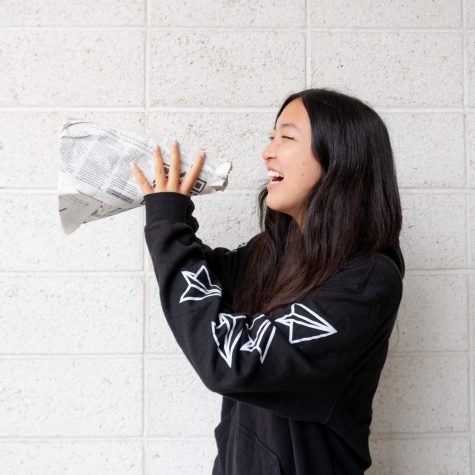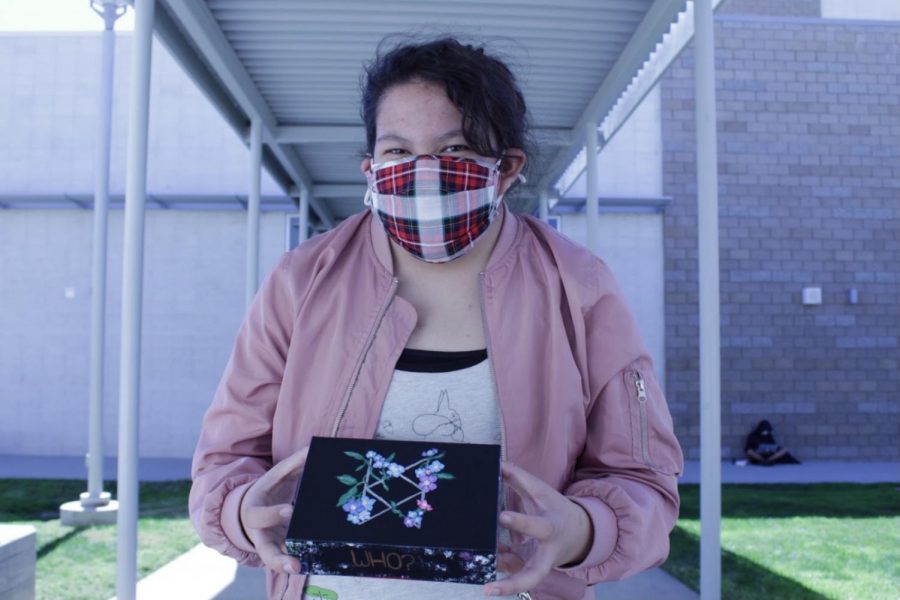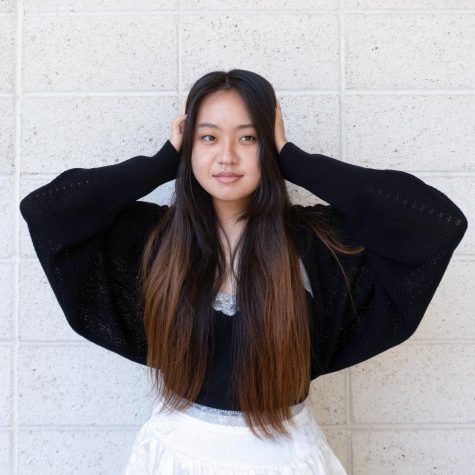Art through the Eyes of a Dungeon Master: Junior Jay Hernandez
Skilled, delicate fingers meticulously poke at the screen of an iPad mini as junior Jay Hernandez, with headphones tucked neatly in their ears and Dungeons & Dragons podcast “The Adventure Zone” playing in the background, swiftly sketches a cartoon-style character. However, the drawing is not of any common Disney heroine or Pixar villain: the miniature, dark-haired figure on the screen is a non-player character (NPC) named Tadeo from a recent game of D&D.
As Hernandez sits in front of me on Zoom — an array of Funko Pops aligned neatly on the shelf behind them — they cannot help but chuckle at my stumbling knowledge of D&D. Face illuminated, they launch into an animated explanation.
“Humans naturally want to create art. It just comes out in different ways. Art comes in so many different forms, and it just so happens that my favorite form is D&D,” Hernandez said. “I love it because you have so many different people coming in. You have those really hardcore ‘I’m going to give my character a voice, and I’m going to dress up as them,’ and then you have those people that just play for fun.”
Hernandez draws much of their artistic inspiration from D&D, a role-playing game in which players create their own characters and roll dice to determine how their actions impact a fantasy world. Heavily dependent on player decisions, the D&D storyline is customizable and changes with every campaign — a term used to refer to a new gaming cycle with new characters.
Jay performs the role of Dungeon Master.
“It’s kind of like the story person,” junior Kristen Fong said. “They control the world; they create all the plotlines. We each had our own backgrounds, but Jay reached out to us like, ‘Hey, what do you do have in mind for your character?’ And so they tried to tie all of our characters together, which was really interesting. My character ended up being cousins with one of the other characters, and we didn’t even know about it.”
Jay’s D&D group gathers every Saturday from 2–5 p.m., each person temporarily supplanting their own personalities with their characters’ and embodying traits they may or may not have in real life. Whenever Jay encounters an artistic block, they sift through memories of these games to find artistic fodder.
“Whenever I’m feeling like I can’t draw anything, I’ll go back through our little playthroughs of the different games, and I’ll pick out NPCs or an encounter that I like,” Hernandez said. “I’ll put all of my imagination into creating them and bringing them to life. It helps me because this is something my friends created, so it means a lot to me and it’s something that I know I’ll spend a lot of time on to make perfect because it has a strong emotional tie and story.”
Hernandez often sends pictures of their drawings to their D&D group chat to show how they view their friends’ characters within each campaign.
“It’s really nice to see their passion as they keep on sending different revisions,” junior Matthew Yeo said. “They’re always like, ‘Oh I made a better one; here’s a better one’ and ‘Does A look better than B?’ They keep asking us these questions, and it really shows how passionate they are and how they grow and how they play D&D.”
Hernandez continues to create fan art for D&D, all the while expanding their artistic subject range to encompass other games. Recently, they molded their first sculpture — engraved with runes and glazed with a medley of colors — which takes elements from a character in the video game, “Journey.”
“There is no actual originality in the world,” Hernandez said. “That isn’t supposed to be a nihilistic view where I’m saying there’s no creativity left in the world. I’m saying that we are all telling the same stories, but just with different perspectives. It’s all about accepting that, in its own way, your art is original because it is your own take on it.”
Your donation will support the student journalists of Portola High School. Your contribution will allow us to purchase equipment and cover our annual website hosting costs.

Claudia Lin is your co-editor-in-chief for her third year on the Pilot. She is looking forward to making as many memories as possible for her last year...







Kristen Fong | Mar 9, 2021 at 10:13 am
I really enjoyed reading the article! 😀
Claudia and Erin: The piece is really well written, and the descriptive language used in the opening was effective in introducing the topic in an interesting way! The article flows well and seems very professional. 🙂
Also, thank you for featuring such an amazing person! 🙂 You go Jay!
Jay Hernandez | Mar 8, 2021 at 9:48 pm
SDFJLSD, thank you so much for writing this amazing article! Thank you so much, Claudia and Erin, this is such an honor.
Shout-out to my amazing D&D group, Kris, Matthew, Ashley, Aarushi, and Brian, a DM needs a good crew to run the best game, and I could not ask for better friends, you guys are so caring and amazing! I can not wait until Saturday. <3
If you want to see more of my art, I post pieces on Insta @little_pyro_and_company about every other week!